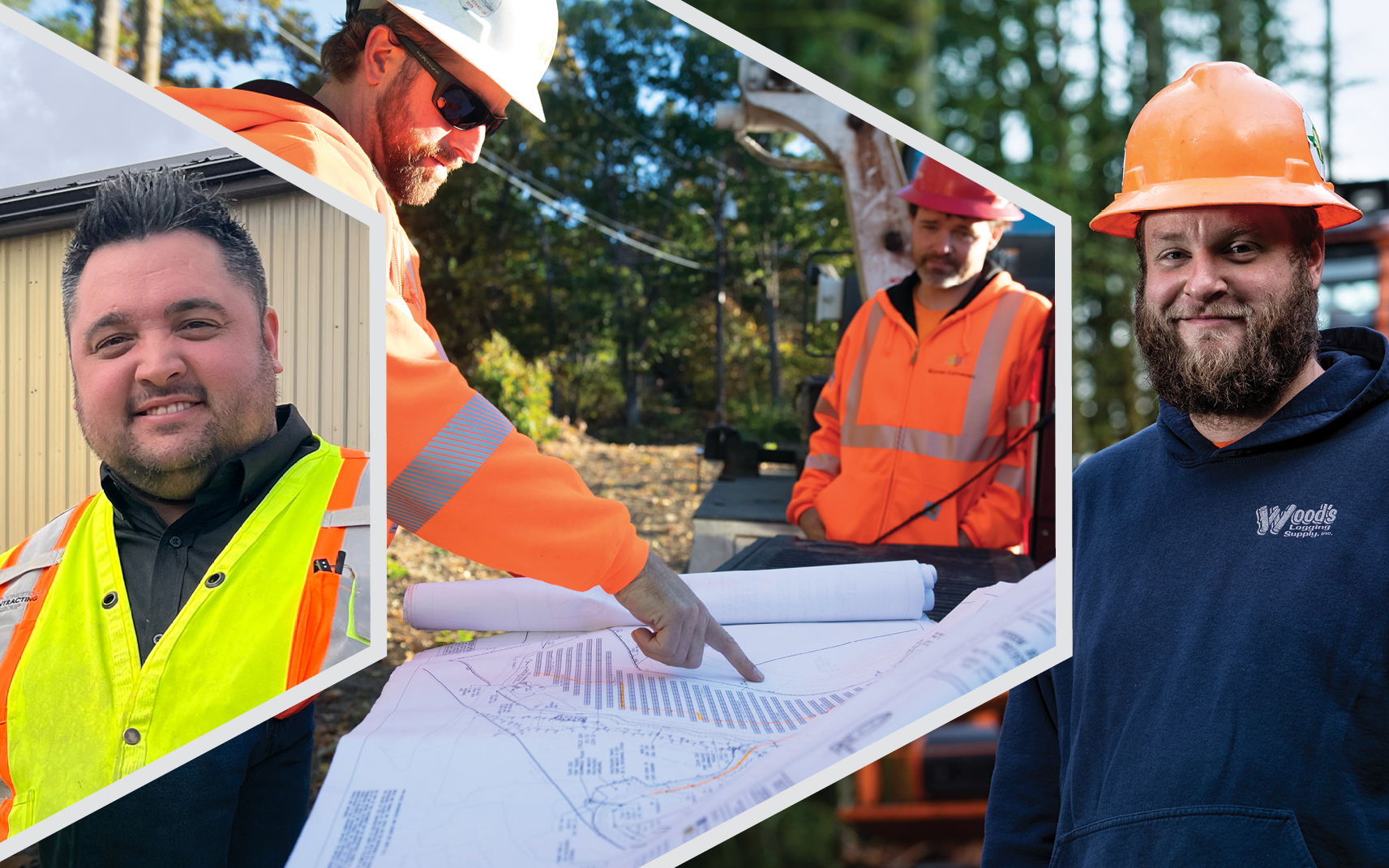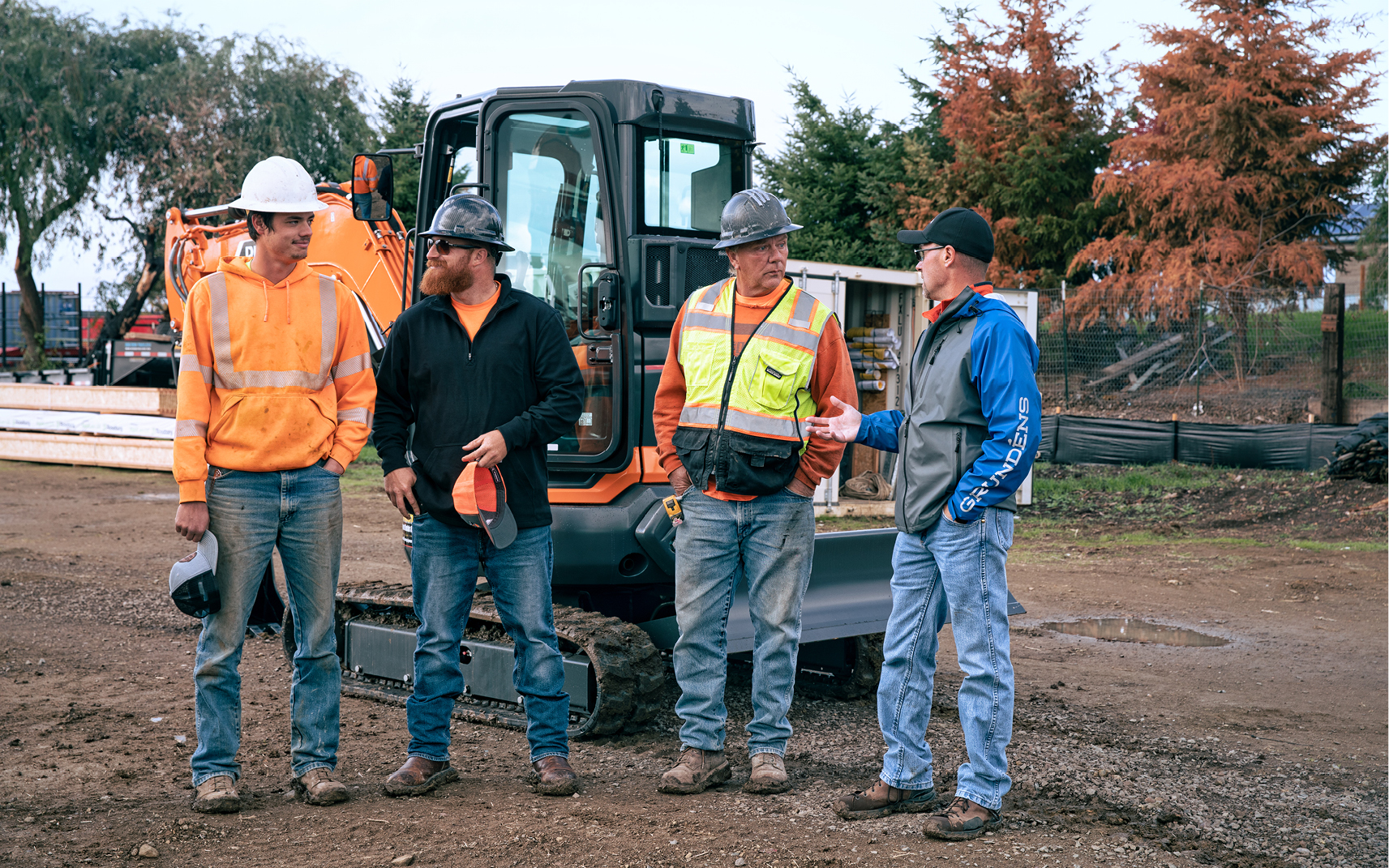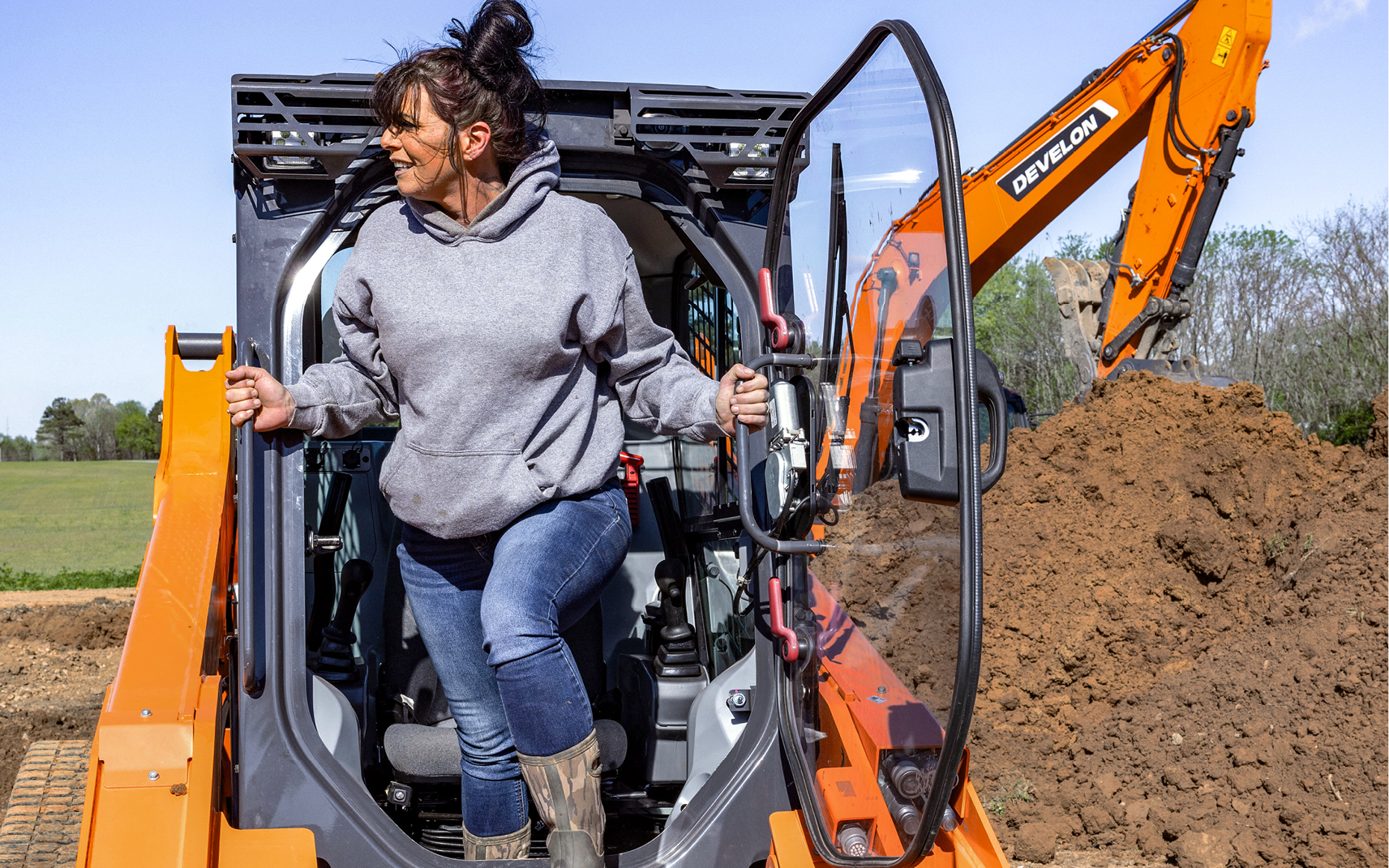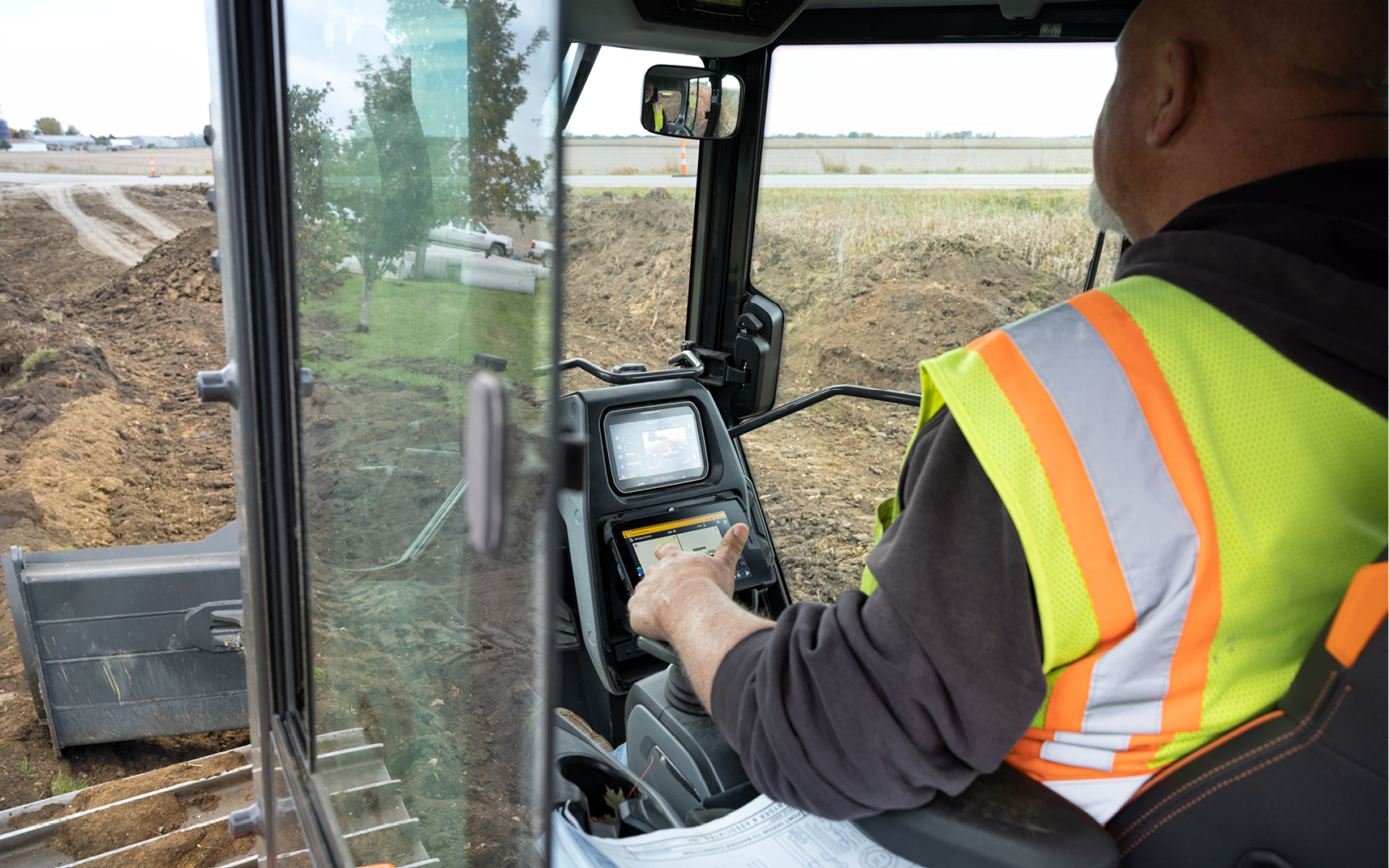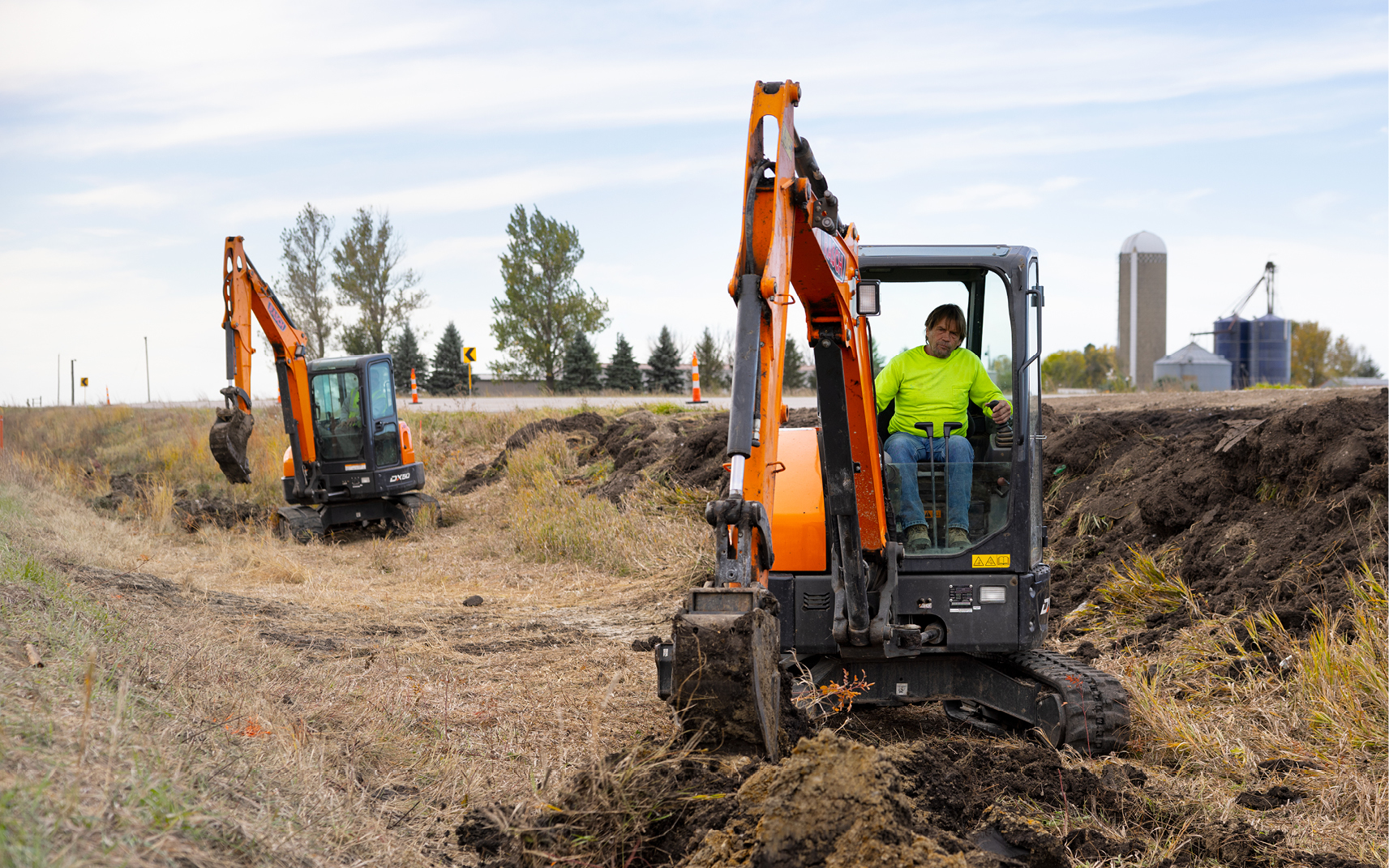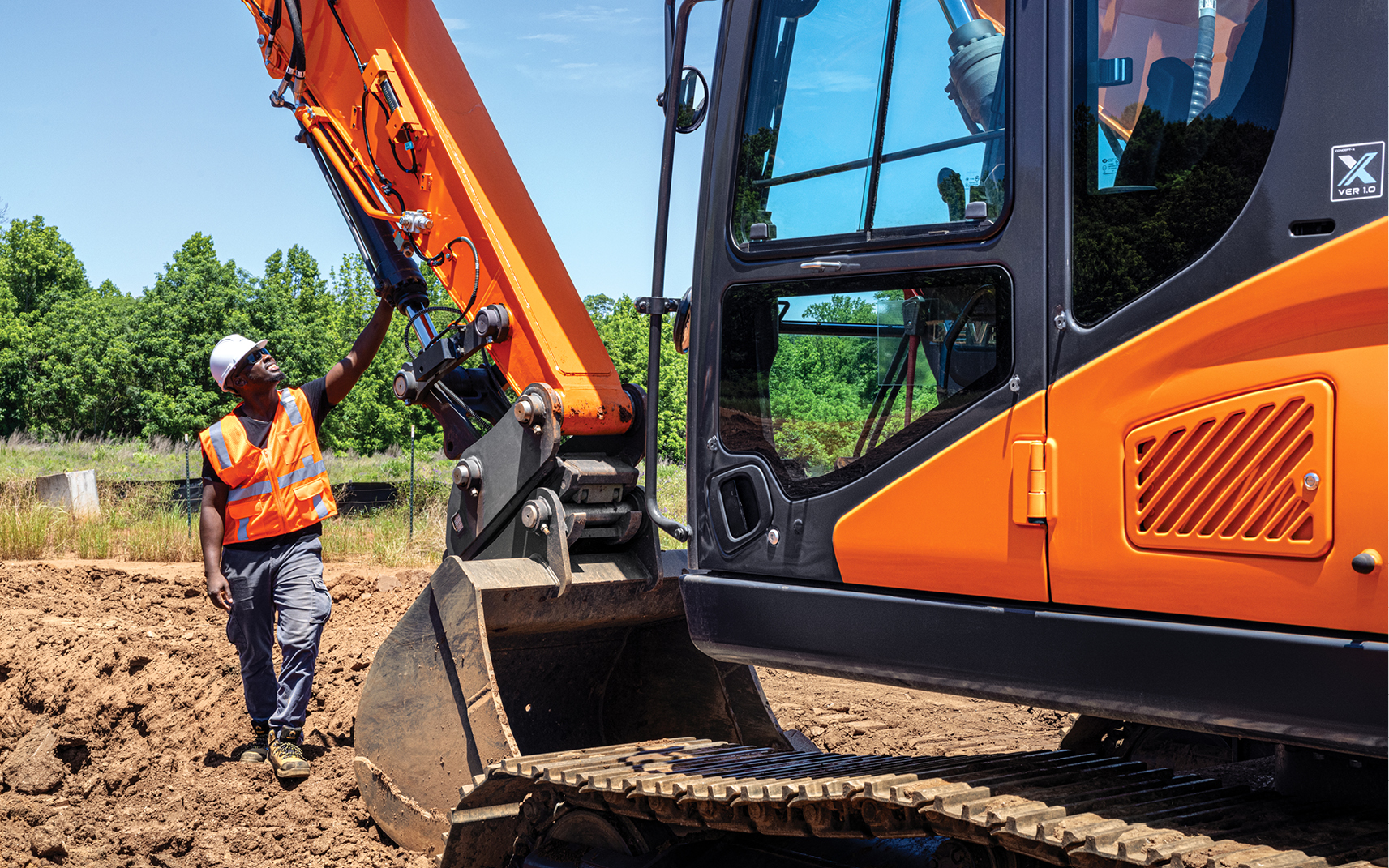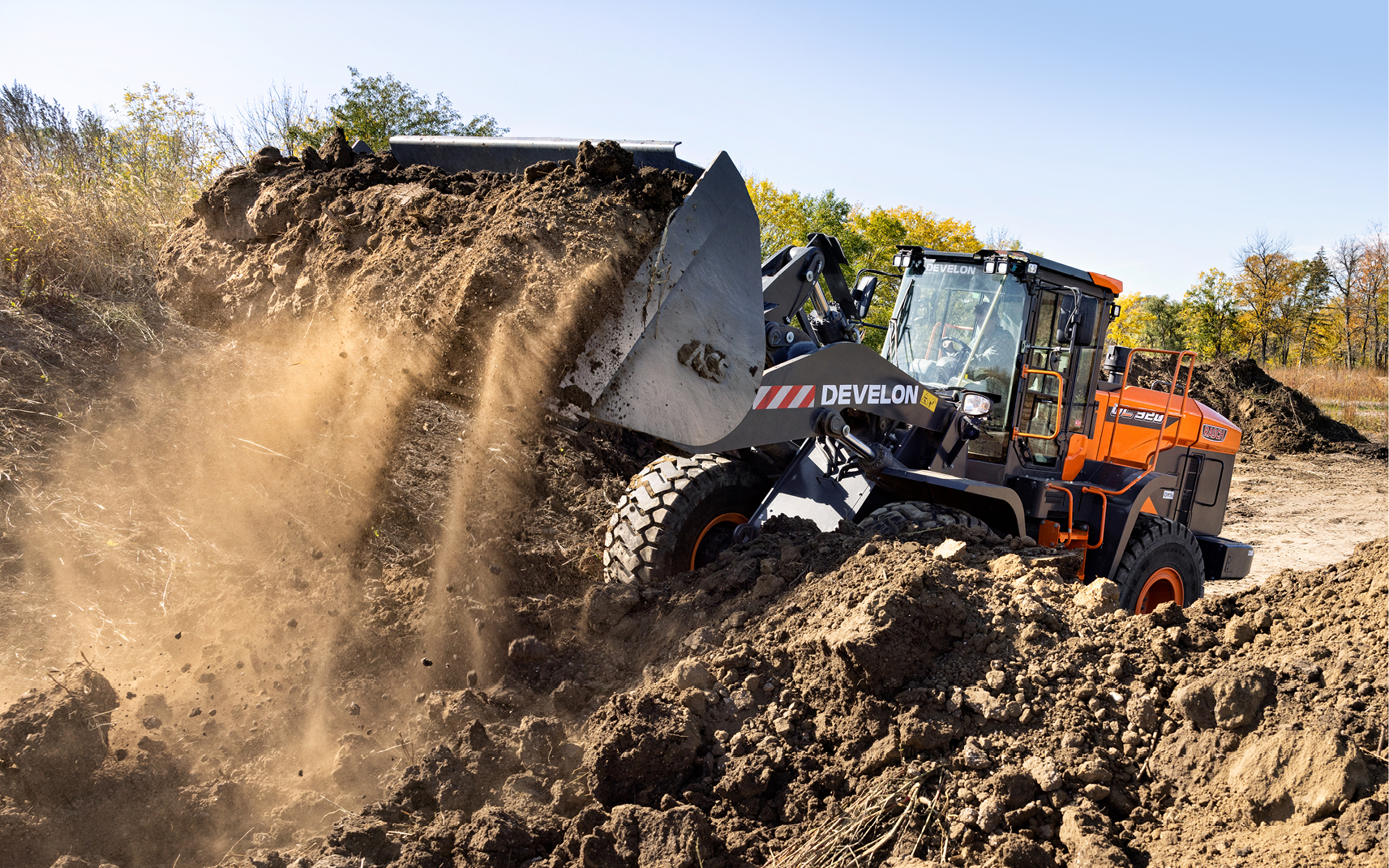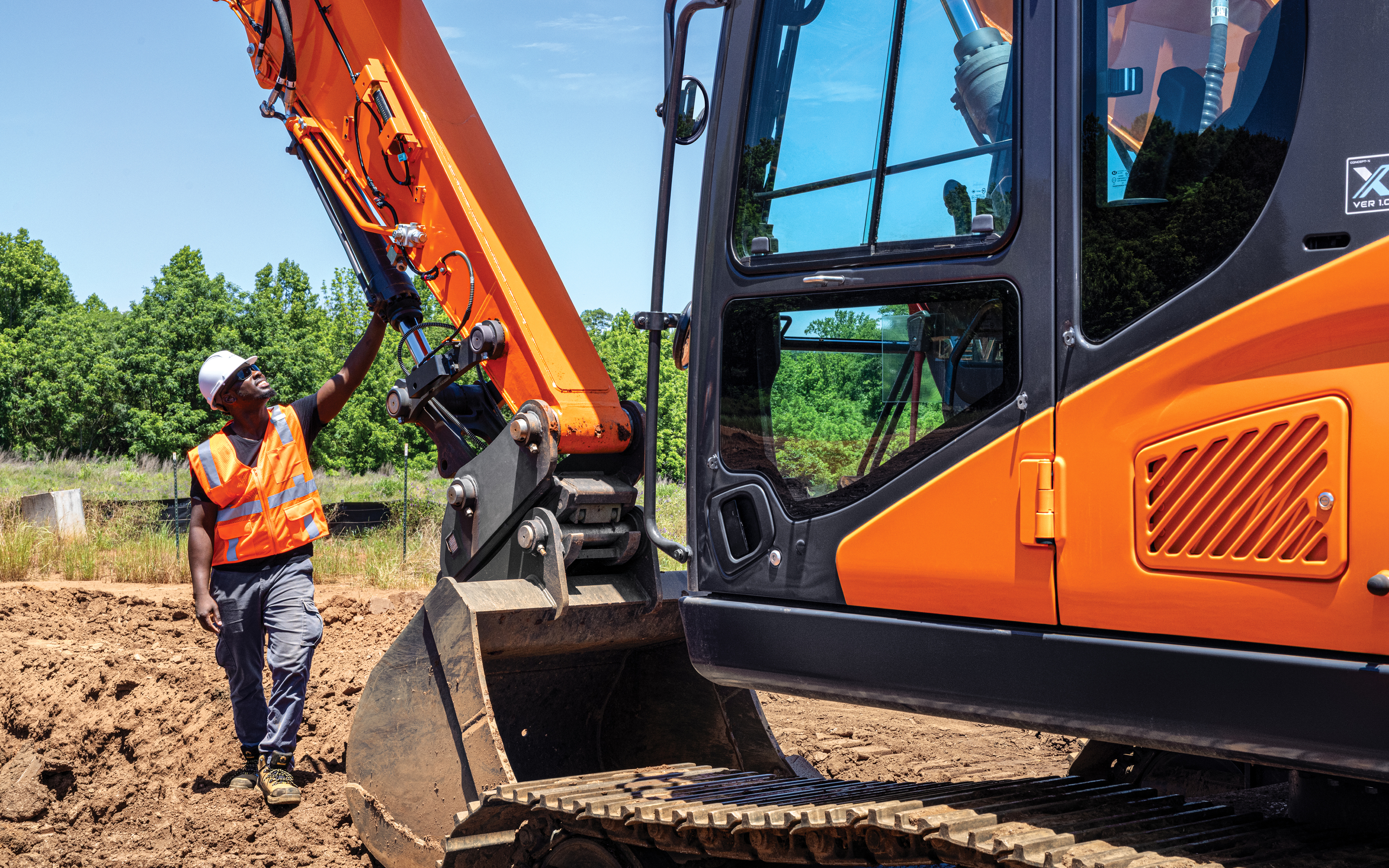Struggling to find qualified construction equipment operators? You’re not alone. Companies across North America face difficulty filling these crucial roles on job sites.
But recent mainstream media reports offer encouraging news for the construction industry. More young people are considering careers in the trades, including operating heavy equipment. This translates to an increased interest in heavy equipment operator training and becoming operating engineers.
Specifically, young adults are interested in learning how to operate types of equipment, including dump trucks. They are also interested in acquiring commercial driver’s licenses and utilizing the latest machine technology.
Advice for Recruiting Equipment Operators
We asked three successful contractors to share their advice for filling heavy equipment operator jobs. They also offered their insights on training and retaining operators once hired. Here’s who participated in our roundtable:
- Jack Henderson-Adams, Western Earthworks (Florence, Massachusetts)
- Shane Hiett, Hiett Logging (Burlington, Washington)
- Chaise Ireland, Conestoga Contracting Group (Elmira, Ontario)
How Does Your Company Recruit Equipment Operators?
Jack: Many of our operators come in and apply without us having to recruit by just seeing our social media. Many of them come in or are referred by our current employees.
Shane: Most of the time it’s word of mouth, but we have been trying to use social media as it’s become more prominent in everyone’s life.
Chaise: Recruitment of any team member starts with a long-standing reputation of being a fair person in business. Years of follow-through and successful retention strategies naturally lead to more prospects who seek out the Conestoga Contracting team.
Biggest Challenges in Recruiting New Operators?
Jack: Some people think everyone is an operator. We understand that there are equipment operators and there are equipment drivers. We emphasize honesty in their experience levels because it will be obvious where they stand on the first day in the field.
Shane: Some new operators lack an understanding of how a logging operation works or how the machines operate. Anyone can get in a machine and move levers and buttons. There’s so much more to it than that for production and safety.
Chaise: Communication of expectations in a way that all prospective candidates understand.
What Training Is Offered for New Hires?
Jack: New hire operators go through a two-hour training in our office. That is followed by a walk-around and inspection, and training on all the different types of heavy equipment we have in the field. We have gone so far as to send operators to our dealers for a hands-on experience to learn about a certain piece of equipment.
Shane: We show our new operators the basic machine controls and concepts. Then we let the new operators get in the seat and practice to get comfortable with the equipment. We give them pointers with explanations and stop them if we have concerns about safety or damage.
Chaise: Our new operators usually have three-plus years of experience when we hire them. We provide training at our equipment storage yard. We ask the operator to spend four to six hours performing various activities to get used to the equipment. They are required to go through a training program within three months of employment with a service provider who trains our operators on proper equipment tie-down methods.
How Can We Encourage and Promote Trade Schools?
Jack: We need to spend more time engaging kids in high school about attending vocational schools and working in the trades. So many kids are being pushed into college after earning their high school diploma. Some of them aren’t ready for it, or they’re just not the classroom type.
Shane: We need to bring back vocational programs in our high schools. For example, start an FFA forestry team or a woodsmen team. Not every kid is cut out for a four-year college program for a degree they will never use. A logging company in our area has been trying to get involved in the local high school. The company offers tours in the woods and attends job fairs at high schools.
Chaise: We need to promote a level of respect for all jobs, both trades and other careers, with the understanding that we all need each other. There needs to be more discussion about realistic expectations in the field of construction.
What Options Are Available for Aspiring Operators?
Jack: There are not many in our area other than the local trade school. I could see a direct benefit to contractors partnering with brands like DEVELON and going into high schools to talk to kids about the amazing technologies that are available and what a career path looks like with heavy machinery.
Shane: There is nothing for forestry in our area. The University of Idaho and Oregon State University have a couple of programs that are geared toward that direction. I’m sure the local construction union in the Seattle area has some kind of training program.
Chaise: We encourage everyone we hire to have a heavy equipment ticket from a reputable school. In my opinion, the most valuable education you can get is by doing your research on which companies are good to work for and which aren’t.
How Do You Keep Heavy Equipment Operators?
Jack: Retaining operators depends on the person. We make a point to get to know our employees and our operators on a personal level because everyone is different. Everyone prioritizes their needs differently, and we try to cater to what each person might need.
Shane: We try to update machines and work trucks as often as we can financially afford it. We started offering medical insurance this year. We do our best to keep everyone happy and enjoying the job they do.
Chaise: We follow through on our commitments, provide constant training, respect our employees, provide newer equipment and give consistent team-building techniques. But most of all, a clear expectation on what the deliverables are and a clear communication on KPIs so they know the overall performance and where we need to improve.
If you or someone you know is interested in a career operating equipment, look for an apprenticeship program in your area. Apprentices learn practical skills during on-the-job training complemented by classroom instruction. After successfully completing an apprenticeship program, operators receive a journey-level qualification.
Looking for more great advice for new construction equipment operators? Read our heavy equipment safety tips for operators.

By DEVELON
DEVELON North America is a leading manufacturer of heavy and compact construction equipment and attachments, serving customers in a variety of industries with durable, reliable, and productive machines.

